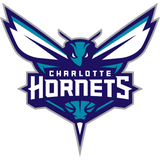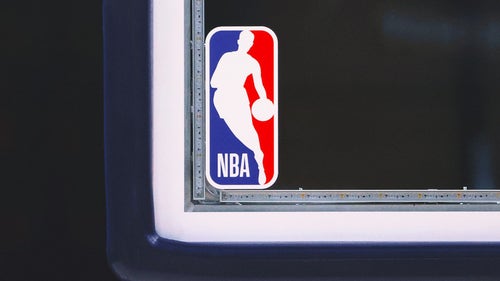
Follow the Buzz: Can the Charlotte Hornets teach the Orlando Magic to fly?
Jan 22, 2016; Orlando, FL, USA; Charlotte Hornets guard Kemba Walker (15) steals the ball from Orlando Magic guard Elfrid Payton (4) during the second half at Amway Center. Charlotte Hornets defeated the Orlando Magic 120-116 in overtime. Mandatory Credit: Kim Klement-USA TODAY Sports
The Charlotte Hornets have accomplished what the Orlando Magic are hoping to achieve — building through the Draft into a perennial Playoff team.
For the Orlando Magic, the past few years have been about building toward mediocrity. A .500 record is, after all, a sure sign for most rebuilding teams things are headed in the right direction.
Without a superstar on the roster, the team simply has to fight and claw its way up the ladder, doing whatever it can to move away from the lottery and back up the standings toward relevance and all that brings.
Success is one element, with the team angling for a record good enough to ensure playoff basketball returns to Orlando as soon as possible. But the main driver is perhaps financial, as management and owners alike become more and more conscious of ticket demand, the absence of games being broadcast nationally, jersey sales and the like. Winning breeds success. And at some point everyone gets restless for any tangible measure of success.
The Magic are, after all, currently tied with the Philadelphia 76ers and Utah Jazz for the fourth longest playoff drought (4 years), trailing the Phoenix Suns (6 years), the Sacramento Kings (10 years), and the Minnesota Timberwolves (12 years).
For the Magic, these four years represent the longest Playoff drought in franchise history, tying the first four years in the franchise’s history.
The Magic made some serious changes this summer due to a desire to end this run as soon as possible. They turned Victor Oladipo into Serge Ibaka, signed Bismack Biyombo to a sizable deal and added seasoned veterans like Jeff Green, D.J. Augustin and Jodie Meeks to what is, still, a young roster.
These moves were made to let fans, and the basketball-loving public, know Orlando is getting serious again. That this is a franchise that has grown tired of losing, and wants to win again, now.
Of course, these moves alone will not necessarily take the Magic to where they want to be. But they certainly went some way to signaling the club’s intent. After all, the Eastern Conference is currently loaded with middle-of-the-road teams (see the New York Knicks, Detroit Pistons, Miami Heat, Washington Wizards to name a few), any of whom could quite easily make a postseason leap this year.
And, like the Magic of old, this team is evidently thinking “Why not us? Why not now?”, albeit for very different reasons.
Apr 27, 2016; Miami, FL, USA; Charlotte Hornets guard Kemba Walker (15) looks on against the Miami Heat during the second half in game five of the first round of the NBA Playoffs at American Airlines Arena. Mandatory Credit: Steve Mitchell-USA TODAY Sports
Model for growth
If the Magic need inspiration, they might want to look north to Charlotte, as the then-Charlotte Bobcats endured a seven-year playoff drought between 2003 and 2009. And in total, the franchise (now the Charlotte Hornets) has made just three postseason appearances in the past 14 years (one of which saw them get swept by the Magic in 2010).
But under coach Steve Clifford’s guidance, they have finally made it back to the “Promised Land.” And they look capable of staying there for some time, following last year’s elimination in seven games to the Heat.
As the long Playoff hiatus suggests, though, it was far from an easy road back.
In fact, the Bobcats/Hornets had to overcome a ton of injuries, misguided lottery picks and bad luck in the free agency market, while revamping several times, to become relevant again.
magic
Orlando Magic Daily 1 dOrlando Magic Grades: Boston Celtics 117, Orlando Magic 87
More headlines around FanSided:
1 d - Stephen Zimmerman sets Erie BayHawks rebounding record1 d - Magic Wands: Orlando Magic vs. Boston Celtics1 d - Orlando Magic Daily Roundtable: Meeting first quarter expectations1 d - NBA Trade Rumors: Orlando Magic Targeting A Scorer1 d - Elfrid Payton serves a reminder of his playmaking skillMore News at Orlando Magic Daily
Orlando has, for the most part, rebuilt the smart way (largely through the lottery) to this point. Despite not having a superstar in their midst, they should now have the kind of foundation they need to snap the skid either this season or next. But there are parallels between the blueprint the Hornets used and that which the Magic are currently using.
Look at the draft picks for instance.
Ignoring their wilderness years, Charlotte’s rebuild truly began with the 2011 NBA Draft, when newly installed general manager Rich Cho chose Kemba Walker with the ninth overall pick. The following year he took Michael Kidd-Gilchrist with the second overall pick, putting another of the franchise’s new foundations in place.
Like Aaron Gordon and Elfrid Payton, neither of these players exactly entered the league with ‘star’ written all over them. But both have worked hard at their games.
Walker became one of the most menacing point guards in the league offensively, while Kidd-Gilchrist has developed into one of the better perimeter defenders the NBA has to offer.
Nov 7, 2015; San Antonio, TX, USA; Charlotte Hornets small forward Nicolas Batum (5) shoots the ball as San Antonio Spurs power forward David West (R) defends during the second half at AT&T Center. Mandatory Credit: Soobum Im-USA TODAY Sports
Building and Process
As good as these players have become, they did not exactly transform the Hornets franchise overnight. There was a lot of losing to be done before they got better.
Surrounded by mediocre role players like Ben Gordon and Ramon Sessions, the then-Bobcats logged a 21–61 record in 2012, the second worst in the league. This resulted in them receiving the fourth overall pick at the 2013 Draft. Choosing Cody Zeller, they then made a splash in free agency by adding big man Al Jefferson.
Coupled with the addition of the savvy Clifford (who, of course, spent five years as an assistant coach in Orlando), these moves took the Hornets back to where they needed to be. A place they have since galvanized further by adding key veteran pieces like Nicolas Batum, Marvin Williams and Roy Hibbert.
Like Orlando, they have established a defensive identity that has given them the fifth best defensive rating (100.9 – Orlando’s is 10th best at 102.1), the most defensive rebounds per game (37.4 – Orlando is 13th best at 34.2 per game), and the 15th most blocks per game (5.2 – Orlando is fourth best with 5.9 per game).
Offensively the two teams are quite different though. Charlotte is averaging 104.5 points per game (14th best in the league), while the Magic score just 94.3 points per game (29th best).
The Hornets offense functions largely around Walker, who is averaging 23.6 points per game, and Batum (13.5 points per game). Walker’s dribble penetration compliments Batum’s shooting.
Additionally, they are also getting double figures from Marvin Williams, Frank Kaminsky, Marco Belinelli and Cody Zeller, who round out a balanced attack.
Orlando, on the other hand, does not currently have the luxury of a 20-plus-point scorer like Walker. The Magic currently have to rely on the combined efforts of Evan Fournier (16.7 points per game), Serge Ibaka (14.3 points per game) and Nikola Vucevic (12.4 points per game) to get them going on a nightly basis.
If they want to follow the Hornets example, this is something the Magic will need to address soon. As, although they are currently grinding out wins, they often lack the firepower to close out tight games.
Dec 12, 2015; Charlotte, NC, USA; Charlotte Hornets guard Kemba Walker (15) calls out to his team during the first half of the game against the Boston Celtics at Time Warner Cable Arena. Mandatory Credit: Sam Sharpe-USA TODAY Sports
Creating long-term success
Walker, then, is the key difference between where Hornets are and where the Magic want to be. He is a true difference maker, knocking on the door of stardom.
The good news is that despite some questionable decisions in the past, Magic general manager Rob Hennigan does still have enough assets to conjure some scoring via trade.
The bigger picture for the Magic has become a tad clearer.
No team wants to suffer the fate that befell the Bobcats – or that is currently afflicting the Kings, Timberwolves and Suns. There is only so much losing a fanbase can endure before it just starts switching off.
It would appear the Magic are on the right path to break that streak. If Orlando continues to follow a similar blueprint to that which the Bobcats/Hornets laid they will not be too far off mediocrity.
In order to get beyond that they will need a little luck in free agency; the kind of luck a franchise like the Orlando Magic only often gets by offering consistent playoff basketball.
If they can soon offer that they may be able to find a winning formula, as the Charlotte Hornets (who currently sit fourth in the Eastern Conference) clearly have.
More from Orlando Magic Daily
This article originally appeared on





